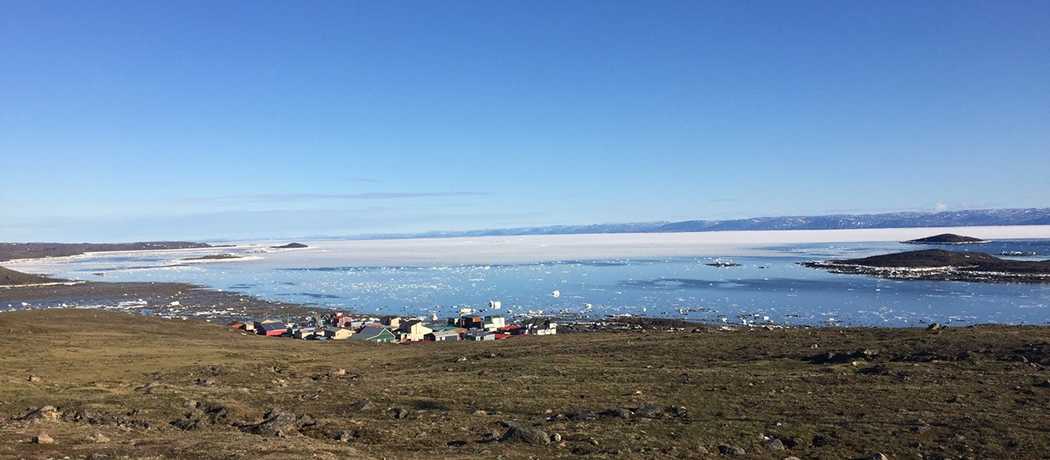
A Nunavut-Led Approach to Food Security
May 16, 2023

Researchers at the Ontario Veterinary College (OVC) and the University of Alberta are working with Inuit community researchers to develop a research program that addresses Inuit priorities related to food security in Nunavut.
Dr. Amy Caughey, public health nutritionist and recent PhD graduate of OVC, University of Alberta Professor Dr. Sherilee Harper, and OVC Professor Dr. Jan Sargeant have been working with Inuit community health representatives and other Inuit knowledge holders to develop an Inuit-led, climate, food and health-focused research program called Niqivut Silalu Asijjipalliajuq (NSAP): “Our food & climate change.” The program is focused on Inuit knowledge to support food safety, food preparation and food preservation of traditional Inuit food (called “country food”) in a changing climate.
“Inuit community health workers identified that a major component of food security is having country food, such as seal, fish, whale, and walrus which are very much a part of daily life for many, many Inuit in Nunavut. Sharing Inuit knowledge to support country food preparation and preservation is central to this project,” says Caughey.

Clyde River, Nunavut.
Food insecurity in Nunavut is a widespread and complex public health concern. Country food is rich in key nutrients for good health and is often the preferred food for Inuit; research has shown that the majority of Inuit would like more access to country food than they have. Furthermore, Inuit involved in the NSAP research program have identified that country food is central to mental health and well-being, identity, and medicine.
Igah Sanguya lives in Clyde River, Nunavut and is a partner in the NSAP research program. “Country food is our medicine,” says Sanguya. “My father was in the hospital in Ottawa, and because my husband and I believe country food is our medicine, we brought him seal meat. We cooked seal meat, and he ate it and it was his medicine."
Yet, just as important as what is researched, is how research is approached in Nunavut. “Health research in Inuit communities in Canada has a dark history of colonizing practices, and these are ongoing in many cases,” says Caughey. “Inuit have outlined that there must be changes to how research is approached and conducted in Inuit communities and have created the National Inuit Strategy on Research which outlines how communities expect research to happen.”
In a recent paper, the NSAP research team outlines how time and trust are two important aspects of the NSAP research program.

The team – the majority of whom are in Nunavut and have longstanding working relationships - brought together community health representatives, researchers, Elders, and other knowledge holders in Nunavut to identify research priorities for food security.
Over the span of a year, and many meetings, workshops, discussions and teleconferences, the team built a research program to identify priorities related to food security and climate change. Yet many of the ideas were developed over many years of conversations, ideas sharing, working relationships, and friendships.
The group prioritized developing a meaningful community-led research program guided by the priorities of Inuit community members. “Our research team identified that sharing community-held knowledge of, for instance, fermentation practices, eating all parts of an animal, and using country food as medicine are important to support food security and food sovereignty,” Caughey says. “Inuit knowledge to support food safety in a changing climate is also central to this project.”
The NSAP research program is also engaging Inuit-led research methods - such as storytelling - to inform health policy and advance research related to the climate-food-health interface in Nunavut.
COVID-19 delayed the NSAP research program, which is funded by the Canadian Institutes of Health Research (CIHR); however, the team is anxious to move forward, citing the importance of sharing Inuit knowledge held by Elders. Sanguya states "Country food knowledge exists within our community. This is urgent work.”
.png)